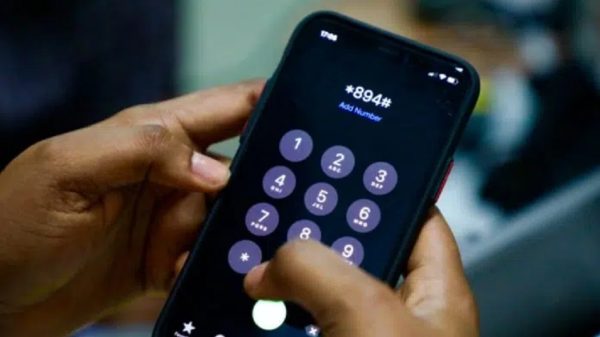A Federal High Court in Abuja refused the Inspector General of Police’s (IGP) application for an injunction compelling about twelve banks and financial institutions to reverse billions of naira allegedly fraudulently removed from a Flutterwave account at Wema Bank.
According to reports, between October 12 and October 13, 2023, a technical fault caused the withdrawals.
The IGP’s legal team contended in the motion ex parte, dated July 17, 2024, and marked FHC/ABJ/CS/1015/24, that approximately 244 suspects (defendants) stole billions of dollars from Flutterwave’s account and transferred the money to multiple bank accounts owned by people who are either hard to find or untraceable.
The petitioner failed to file a motion on notice with the ex parte request, and the court refused to grant it, highlighting the need for the banks to be heard.
2023 Flutterwave Glitch
Citing insider individuals with knowledge of the event, the online media outlet Tech Cabal said earlier in the year that Flutterwave had lost N11 billion as a result of the security compromise.
In the end, though, it appears from the company’s statement that the intrusion was unsuccessful. Flutterwave verified that the event transpired in April after spotting peculiar activity on one of its platforms – which is utilized by a select group of clients for particular commercial dealings.
The business claimed to have notified law enforcement authorities right away and to have given them the IP address and the perpetrators’ data. The business claimed to have successfully stopped a “attempted network intrusion and reported the offenders to security agencies” in a statement provided to The News Chronicles.
In spite of this, the corporation subsequently requested police assistance to retrieve the pilfered monies, as shown in court filings. Police preliminary investigations revealed that on October 12 and 13, 2023, fraudulent transactions were conducted utilizing Flutterwave POS terminals.
Large amounts of money were transferred from Flutterwave’s settlement account to multiple individual bank accounts, thus the company asked Wema Bank to promptly freeze it.
The Nigeria Inter-Bank Settlement System (NIBSS) data also showed that on October 12 and 13, 2023, 814 Flutterwave POS agents carried out 9,633 incorrect transactions on the Flutterwave POS platform as a result of a system error.
Flutterwave’s entire exposure at the time was estimated by NIBSS to be N21.2 billion. Flutterwave, on the other hand, collaborated with banks to limit impacted accounts, effectively saving N7.2 billion.
The Inspector General of Police (IGP) reported that some of the suspected POS agents participating in the fraudulent activities were eventually taken into custody by his team.
Federal High Court stresses a fair hearing in the Flutterwave Case after rejecting IGP’s motion.
Victor Okoye, the attorney for the Inspector General of Police (IGP), urged Justice Peter Lifu to grant his application ex parte and order the refund of monies to Flutterwave during the hearings on Wednesday.
But the judge pushed Okoye to explain why, in accordance with the fair hearing provisions of the constitution, the ex parte request should be granted without the respondents’ input.
The judge said, “Should I order them [the banks] to reverse the funds, based on your one-sided account, without hearing their side of the story?”
“If I grant the reversal, what remains of this case?” he continued. “You did not file a motion under notice. Once I reverse it, that’s the end of the story,” noting the importance of a fair hearing, particularly from the institutions involved.
The judge retorted that the banks should have been served with the legal processes so they could reply, as they are the organizations in charge of reversing the funds, to Okoye’s claim that the defendants were untraceable and could appear in court at any time.
The judge further noted that, by the court’s procedures, there was no move-on notice filed with the ex parte motion.
“Who will reverse it, if not the banks? Serve them and allow them to come to me and say, ‘We surrender, we have no problem, and we are ready to comply with the court order,’” the judge said.
The judge then denied the ex parte motion, stating that it was blatantly in violation of the 1999 Constitution’s Section 36, which protects the right to a fair trial.
Lawyers’ viewpoints
In a special interview with Nairametrics, Barrister Michael Okejimi clarified that although the law allows a court to determine whether to hear the opposing party before granting an ex parte request, the idea of a fair hearing is essential.
“Ordinarily, no party deserves to be unheard in a matter,” he made clear.
He clarified that even while Section 36 of the 1999 Constitution guarantees the right to be heard, there are rare circumstances in which informing the other party could result in irreversible harm. He pointed out that bringing a lawsuit, followed by motions on notice and ex parte for interim orders, is normally the proper course of action in legal matters.
Similar to this, Barrister Opeyemi Owolabi told Nairametrics in an exclusive interview that the court is likely considering the requests at an early stage when an ex parte case is filed without a move on notice or interlocutory injunction.
He clarified that the goal of an ex parte action is frequently to permit an application or security services to look into an account before money is taken out, as such withdrawals may obstruct future inquiry. He made it clear that the move on notice and the request for a fair hearing are good grounds to deny an ex parte request.
Owolabi concluded that the ex parte motion is incompetent in the absence of an interlocutory injunction or move on notice.
Bank and Fintech Fraud Incidents
Flutterwave is not the only company to have had severe fraud occurrences. For instance, the biggest mobile network provider in Africa, MTN, lost N10.5 billion to cybercriminals in 2022.
According to a report on fraud and forgeries published by the Financial Institutions Training Centre (FITC), Nigerian banks suffered a total loss of N2.09 billion due to fraud in Q42023. The most common way used to steal the biggest amounts of money was through mobile channels.
![]()





























































